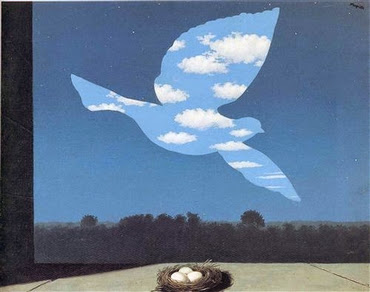Lost birds
- Details

In Argentina, the process wasn't different from other countries. After some years of transition from the European genders (mostly German and French, due to the great influence of French in the high social and cultural classes), the Argentinean song flourished during the forties in the 20th century. The song was a vehicle for musical identity which, in turn, enhanced literature; although it was addressed to the usual public in concert halls, it also gathered traditional music, as tango or milonga. Perhaps because of this relationship with folklore, perhaps because, in the mid-20th century, the dissemination of music became easy, the most well-known art songs were quickly assimilated by popular music and since then, they have been living parallel lives. I'm talking, for instance, about Canción del árbol del olvido by Alberto Ginastera with text by the Uruguayan poet Fernán Silva Valdés, which was popularized by Victor Jara, or about Se equivocó la paloma, by Carlos Guastavino and Rafael Alberti, popularized by Mercedes Sosa.
We're also talking about Los pájaros perdidos (The lost birds) by Astor Piazzolla, the song we're listening today. But, here, unlike Ginastera and Guastavino's songs, it might have been because of the composer’s will. Piazzolla brought tango to concert halls and wrote border music between academic and popular. Today, our song moves on this ground. We can listen to it in art song recitals but it also belongs to those tango night-clubs that Piazzolla regularly visited. There are lots of versions of Los pájaros perdidos but, surprisingly enough, there is little documentation about it. For instance, I wasn't able to find when it was written; the first recordings are from 1975 and we can assume that the song was composed a bit earlier. We know that the poem is by the Argentinian writer Mario Trejo, like two less known songs by Piazzolla: Escándalos privados and Violetas populares.
I said before that I was talking about a border song. Also, border could be applied in the context of this blog too because, according to Mario Trejo in an interview, the music was written before the text:
- We were in Rome. I was working on "Novecento" script with Bertolucci and we met in the hotel. He gave me the music recorded on a tape and soon after, he called Amelita [Baltar] and sat at the piano; At first, I prepared what we call the “monster”: you set any lyrics on the bars and later you write the real ones.
- Where does the metaphor about the lost birds come from?
- Many years before, one night, I was with my friend, the actor Raúl Santana, on the beach in Gesell. It was at night, we were gazing at the sea, and Raul told me: “Mario, birds don't die; they fade away while flying, they vanish”. That's the transitory nature of Art, poetry is here, it's already written, and we only need to be aware of it.
- It's true that you wrote the song in an hour and a half?
- You’d better put down three hours, it's more credible. Do you know what I always remember… When I finished off the poem, Amelita prepared some coffee with milk and a ham sandwich. She got it ready for me.
Since Los pájaros perdidos is leading a double life, we're listening to two versions: as an Art Song, performed by Bernarda Fink accompanied by Carmen Piazzini, and with a non-lyrical singer, Milva, accompanied by a quintet with Astor Piazzola playing the bandoneon (a live recording from 1984). I really like both, what about you?
Amo los pájaros perdidos
que vuelven desde el más alla,
a confundirse con un cielo
que nunca más podré recuperar.
Vuelven de nuevo los recuerdos,
las horas jóvenes que di
y desde el mar llega un fantasma
hecho de cosas que amé y perdí.
Todo fue un sueño, un sueño que perdimos,
como perdimos los pájaros y el mar,
un sueño breve y antiguo como el tiempo
que los espejos no pueden reflejar.
Después busqué perderte en tantas otras
y aquella otra y todas eras vos;
por fin logré reconocer cuando un adiós es un adiós,
la soledad me devoró y fuimos dos.
Vuelven los pájaros nocturnos
que vuelan ciegos sobre el mar,
la noche entera es un espejo
que me devuelve tu soledad.
Soy sólo un pájaro perdido
que vuelve desde el más allá
a confundirse con un cielo
que nunca más podré recuperar.
If you need and English translation please follow this link.













Comments powered by CComment